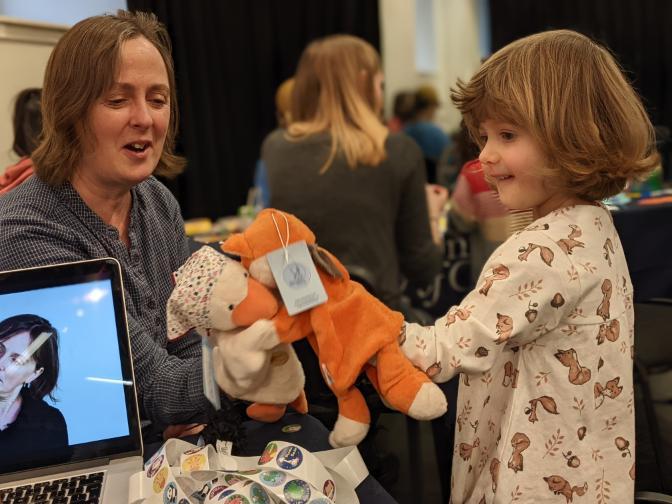Dr Joanna Wincenciak
- Senior Lecturer (School of Education)
- Associate (School of Health & Wellbeing)
telephone:
+44(0) 141 330 3491
email:
Joanna.Wincenciak@glasgow.ac.uk
Biography
I am a member of the People, Place and Social Change Research Group in the School of Education, and offer teaching across PGT and UG/ITE provision in the areas of research methods, child development and cognition. I am also the Director of Learning and Teaching.
I trained as an experimental psychologist, and during my PhD I investigated the brain mechanisms underlying the perception and understanding of emotional and social signals from faces and body cues. In this work I combined psychophysics with virtual reality methods. After my PhD I worked as a post-doctoral fellow on the ESRC and then ERC funded projects investigating the neurobiological basis of human behaviour and social perceptions at the Institute of Neuroscience and Psychology, University of Glasgow. Following this, I worked as research associate in Clinical Ageing Research Unit, Institute of Neuroscience at the Newcastle University, where I examined age related changes in emotion perception and the impact of neurogenerative conditions, such as Parkinson’s Disease on emotion and cognition. I joined the School of Education in 2017, where I established an active research programme centring around emotion, cognition and technology, and their impact on learning and development.
My current research projects include:
- Developmental changes in socio-emotional development, and the impact of art interventions on children’s emotional well-being (Puppetry and Emotional Resilience Project)
- Developmental trajectories in social perception, including perception of trust and authenticity
- Human computer interaction: the impact of technology on our behaviour and leaning and evaluation of usability and leaning design on online learning
I am a researcher who is committed to impact and believe in civic ethics of research. I work closely with local partners, communities and organisations to deliver targeted engagement programmes, develop collaborative projects and promote well-being. My outreach work include, for example, collaborative work with Arts Organisations (Manipulate Arts), charity partners (St Andrew’s Children’s Society), local schools and education centres. I am also a finalist of the Aspect Research Commercialisation (ARC) Accelerator programme, which supports social science and humanities researchers to transform their research-based ideas into social enterprise.
Research interests
I am interested in supervising PhD students in the areas listed below. I have a limited capacity for 2025/26; prospective students are requested to email me their cv and a research proposal (approximately 2,000 words). If the proposal is aligned with my research expertise I will invite them to an informal zoom call.
My research focuses broadly on emotion, cognition and technology. In particular, I am interested in understanding how we perceive and interpret behaviour of other people in everyday life and how we interact with technology around us.
I investigate the developmental trajectories of socio-emotional development; I am particularly interested in children’s social and emotional skills during school transition. I am also interested in examining how people interact with information technology and issues around trust and transparency in human-computer interaction.
I typically use methods from experimental and social psychology, I combine modelling, computer science, survey data and psychological experimentation, and intervention design.
I am a researcher committed to impact and I believe that research should have real-world applications. I am currently developing interventions for increasing social and emotional competence in children. I am also actively engaged in outreach activities, and I participated in events such as ESRC Festival of Social Sciences (FoSS), The Middle of Scotland Science Festival (MoSSFest), Explorathon.

Image: Child playing with a puppet during the FoSS 2022. Author: Joanna Wincenciak
Grants
LSE/ARC Accelarator: Puppet Box Business Development grant (2024-2026, PI, £36,611.76)
ESRC CRoSS/GKEF: Puppet Box – Puppetry-based learning and socio-emotional development toolkit (2022-23, PI, £15,004.22)
ESRC IAA: Nurturing Schools - Supporting children’s emotional resilience and teacher’s self-efficacy using puppetry (2022, PI, £9100.00).
Chancellor’s Fund: PGR Research un-conference (2021-2022, PI, £1000.00)
Experimental Psychology Society Research Grant: Developmental Trajectory of Emotion Perception (2021-2023, PI, £8718.00)
CoSS Strategic Research Fund: Puppetry and Emotional Resilience (2019-2020, PI, £3097.00)
LTDF: User-centered design for digital education – a combined UX and eye-tracking study (2019-2020, PI, 2846.40)
ERSC IAA Business Boost Seed Funding: Trust in Digital Sector (2018-2019, PI, £2125.80)
School of Education Psychology Equipment Fund (PI, £2560)
School of Education Small Project Funding (Co-I, £5366.16)
Supervision
I am interested in supervising PhD students in the areas listed above. I have a limited capacity for 2025/26; prospective students are requested to email me their cv and a research proposal (approximately 2,000 words). If the proposal is aligned with my research expertise I will invite them to an informal zoom call.
Current PhD students:
Fiasal Abdullah Assiri - The Factors Impacting Secondary School Teachers’ Continuance with Online Learning
Yingkai Yan - Teachnology assisted teaching
Jiachen Wang - AI-based second language learning
Andrea Kyprianou - Smartphone Applications on Adult Learners’ Acquisition of Phrasal Verbs in English
Past PhD Students:
Heba Balatia - The Influences of Anger and Sunk Cost Bias on Project Status: An Extension to Portfolios of Projects
Farina Tavasolian - Gifted Young Children and the Early Years Curriculum
Ahmad Abotalib - Education Policy towards Teacher Preparation Teacher Effectiveness
- Kim, Nayeon
Enhancing Emotional Regulation in ADHD Children through Home–School Collaboration: Impacts on Classroom Behaviour and Family Dynamics - Kyprianou, Andrea
Assessing the Effectiveness of a Smartphone Application on Adult Learners’ Acquisition of Phrasal Verbs in English
Teaching
I teach on the MSc in Psychological Studies, MSc Education, Public Policy & Equity and MSc in Psychology (ODL). I offer Quanititative Methods training across UG, ITE and PGT provision.
Additional information
Reviewer for: Body Image, British Journal of Psychology, Education Sciences, Evolution and Human Behavior, Evolutionary Behavioural Sciences, Human Ethology Bulletin, Internatonal Journal of Environmental Research and Public Health, Psychology, Crime and Law, SAGE Open, Sustainability, Vision Research



